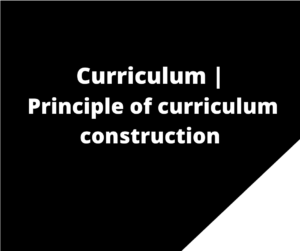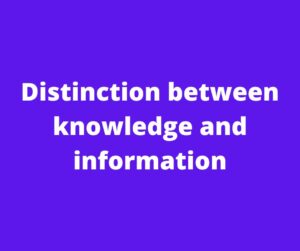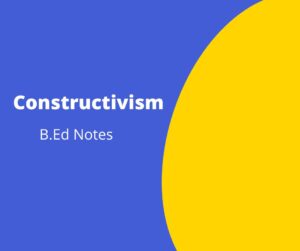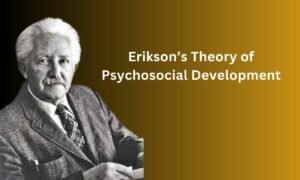Concept of Knowledge
Chamber of Dictionary answers the following question about what knowledge is-
⦁ The fact of knowing
⦁ information or what is known
⦁ the whole of what can be learned or found out
Further, it is also knowledge as assured belief, that which is known, information, instruction, enlightenment, learning, practical skill, and acquaintance. considering all the above that are worth knowing.
A term widely used by the teacher, educators, and policymakers is the concept of knowledge and it refers to the body of information that teachers teach and that students are expected to learn in a given subject or content area such as English, Language, arts, mathematics, science or social studies. The concept of knowledge generally refers to the facts, concepts theories, and principles that are taught and learned0 rather than related to skills such as reading, writing, or researching that student also learned in academic courses.
Importance of Knowledge
Knowledge is not truth. Truth is inferred on the bases of available knowledge. The truth about the universe around us or the macrocosm to microcosm is inferred knowledge.
The knowledge of the galaxy is inferred, and so is the whole nuclear science, Space, DNA, etc. Much of what we knew is not observed knowledge. They are known through their effects, properties, and characteristics. It is at the stage of inference that employment of the method of drawing inferences that philosophy is at work.
Knowledge certified by philosophy enters the curriculum of education. The method is approved by the philosophy of building knowledge from the bases of methods and techniques of teaching.
The truth arrived by philosophy set the goals and objectives of education as well as instruments and use of evaluation. This knowledge helps philosophy to interpret, guide, monitor, and validate the educational process at every stage.
Source of Knowledge
There are several ways of acquiring knowledge following are the main important source and ways of obtaining knowledge
- Knowledge through nature: Nature is an important source of knowledge. Rousseau and Tagor laid great stress on obtaining knowledge from nature. They believed that learners learn by observing nature
- Knowledge through sense experience and observation: By means of sense experiences the characteristics of the external world are known and nature science deals with them. Logical knowledge is obtained by analysis and synthesis of the perceived data
- Knowledge through Reasoning and Rationalisation: According to this approach the method of pure reason is the most accurate way of gaining knowledge
- Knowledge through Intuition: The knowledge that we perceive through sense and infer through the intellect is known as intuitive knowledge
- Knowledge through Empirical Approach: This approach holds that the only valid instruments for gaining knowledge are the sense of perception.
- Knowledge through Authoritarian: It argues that real knowledge is gained from some certain authority eg. religion, government, Science, etc.
- Knowledge through training: Through gradual training mind is free from the influences of concepts and memory images of the past and thus true knowledge can be acquired.
- Knowledge through social awareness: Interest in social problems also motivates us to get knowledge. The policymakers adopt several social welfare measures to solve the social problem and men thus adjust themselves to society.
- Knowledge through action: Action proceeds knowledge. Whatever knowledge we possess has resulted from our activities and our efforts to survive
Conclusion
we can conclude from the above discussion, that knowledge is inferred on the basis of available knowledge. Children can gain knowledge through various ways like sense, training, action, etc. The role of the teacher is to help students to receive true knowledge only.
References
https://www.learningclassesonline.com/2020/10/knowledge-and-curriculum.html



